 W
WJovan Belimarković, was a Serbian general and politician.
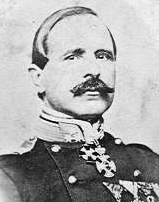 W
WGeneral Milivoje Petrović Blaznavac was Serbian soldier and politician. His father, Petar, was a rural merchant and shopkeeper from Blaznava, although a story circulated that he was an illegitimate son of Prince Miloš Obrenović and a lady of Miloš's household, whom Miloš married off to one of his guards retired as a village storekeeper, before the birth of Blaznavac in 1824.
 W
WMiloš Božanović was a Serbian military commander and Minister of Defence.
 W
WDimitrije Cincar-Marković was a Serbian politician serving as the Prime Minister of the Kingdom of Serbia, army general, Chief of General Staff, professor of war history and strategy.
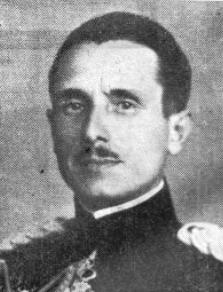 W
WVladimir Cukavac was a Serbian general holding the title of army general in the Royal Yugoslav Army. He commanded the 5th Army during the German-led Axis invasion of Yugoslavia of April 1941 during World War II.
 W
WBožidar Delić is a Serbian retired general of the Armed Forces of Yugoslavia and the former deputy speaker of the Serbian parliament.
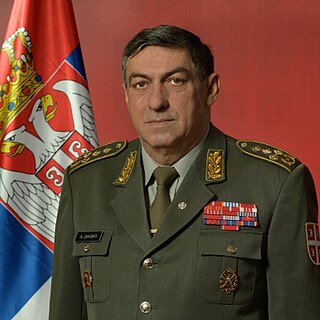 W
WLjubiša Diković is the former Chief of General Staff of the Serbian Armed Forces from 12 December 2011 to 14 September 2018. He previously served as Commander-in-Chief of the Serbian Land Forces.
 W
WPetar Drapšin was a Yugoslav Partisan commander.
 W
WIlija Gojković was a Serbian military commander and Minister of Defence.
 W
WGeneral Sava Grujić was a Serbian politician, statesman, army officer, and author, serving five times as Prime Minister of the Kingdom of Serbia under two different monarchs from 1887 to 1906.
 W
WStevan Hadžić was a general of the Royal Serbian Army and an army general of the Royal Yugoslav Army. In the Kingdom of Yugoslavia, he served four times as Minister of the Army and Navy and remained there until his death.
 W
WĐorđe "Đura" Horvatović was a Serbian general and military minister.
 W
WBogoljub Ilić was a Serbian Armijski đeneral with the Royal Yugoslav Army who was briefly Minister for the Army and Navy prior and during the German-led Axis invasion of Yugoslavia in April 1941. He was then Minister of the Army and Navy in exile until August 1941, and subsequently Minister of the Army in exile until January 1942.
 W
WPavle Jurišić Šturm KCMG was a Serbian general, best known for commanding the Serbian 3rd Army in World War I.
 W
WRadislav Krstić is a Bosnian Serb war criminal who was the Deputy Commander and later Chief of Staff of the Drina Corps of the Army of Republika Srpska from October 1994 until 12 July 1995. He was promoted to the rank of major general in June 1995 and assumed command of the Drina Corps on 13 July 1995.
 W
WMilojko Lešjanin was a Serbian military officer and politician. He served as Minister of Army and Chief of the Serbian General Staff for several times in the 1870s and 1880s. As corps and army commander he took part in the wars with Ottoman Turks and Bulgarians in 1876–1885. He led the Serbian troops at the conquest of Niš in 1877 and at the blockade of Vidin in 1885.
 W
WMilan Milovanović was a Yugoslav Army general Armijski đeneral who was acting Chief of the General Staff of the Royal Yugoslav Army from 1922 to 1924 and Chief of the General Staff between 1929 and 1934. He was briefly Minister for Army and Navy between April and October 1934, and was appointed as senior member of the Military Council in 1935.
 W
WJovan Mišković (Serbian Cyrillic: Јован Мишковић; was a Serbian general, minister of war, military theorist, writer and the president of Serbian academy of sciences and arts.
 W
WRatko Mladić is a Bosnian Serb colonel-general and convicted war criminal who led the Army of Republika Srpska (VRS) during the Yugoslav Wars. In 2017 he was found guilty of committing war crimes, crimes against humanity, and genocide by the International Criminal Tribunal for the former Yugoslavia (ICTY).
 W
WMilan Mojsilović is the Chief of General Staff of the Serbian Armed Forces, having been appointed on 14 September 2018.
 W
WJovan Naumović was an Armijski đeneral in the Royal Yugoslav Army who commanded the 3rd Territorial Army during the German-led Axis invasion of Yugoslavia of April 1941 during World War II. Naumović's command consisted of three infantry divisions and some smaller formations. The 3rd Territorial Army was part of the 3rd Army Group which was responsible for the border with Albania between Lake Ohrid to Lake Skadar, and the Romanian and Bulgarian borders between the Iron Gates and the Greek border.
 W
WMilan Nedić was a Yugoslav and Serbian army general and politician who served as the Chief of the General Staff of the Royal Yugoslav Army, Minister of War in the Royal Yugoslav Government. During World War II, he collaborated with the Germans and served as the Prime Minister of a puppet government, the Government of National Salvation, in the German occupied territory of Serbia. After the war, the Yugoslav communist authorities imprisoned him. In 1946, they reported that he had committed suicide by jumping out of a prison window.
 W
WMilutin Đ. Nedić was a Yugoslav Armijski đeneral and Chief of the General Staff of the Royal Yugoslav Army prior to the outbreak of World War II. He was replaced in late 1938, and later commanded the 2nd Army Group during the German-led Axis invasion of Yugoslavia of April 1941. Nedić's command consisted of General Milan Rađenković's 1st Army, responsible for the area between the Danube and the Tisza, and the 2nd Army of General Dragoslav Miljković, responsible for the border from Slatina to the Danube. Nedić had no Army Group reserve, but the 2nd Army was to constitute a reserve of one infantry division deployed south of Slavonski Brod.
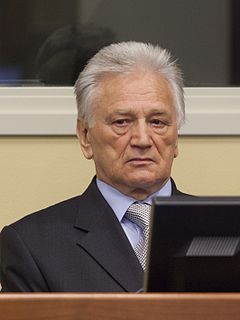 W
WMomčilo Perišić is a Serbian former general who served as the Chief of the General Staff of the Armed Forces of Yugoslavia between 1993 and 1998.
 W
WKosta Protić was the first Serbian General and the Chief of the Serbian General Staff.
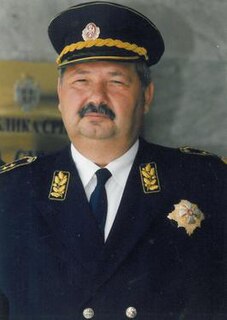 W
WNovica Simić was a Bosnian Serb military general during the Bosnian War.
 W
WKrsta Smiljanić was a Serbian army general, Ban of Zeta Banovina and senator in Kingdom of Yugoslavia
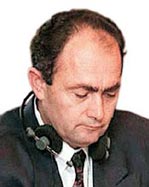 W
WZdravko Tolimir was a Bosnian Serb military commander and war criminal, convicted of genocide, conspiracy to commit genocide, extermination, murder, persecution on ethnic grounds and forced transfer. Tolimir was a commander of the Army of Republika Srpska during the Bosnian War. He was Assistant Commander of Intelligence and Security for the Bosnian Serb army and reported directly to the commander, General Ratko Mladić.
 W
WMiloš Vasić was a Serbian general who commanded the Serbian 3rd Army in World War I.
 W
WVlastimir Đorđević is a Serbian former police colonel general. For his role in the Kosovo War, he was found guilty of war crimes against Kosovo Albanians before the ICTY.